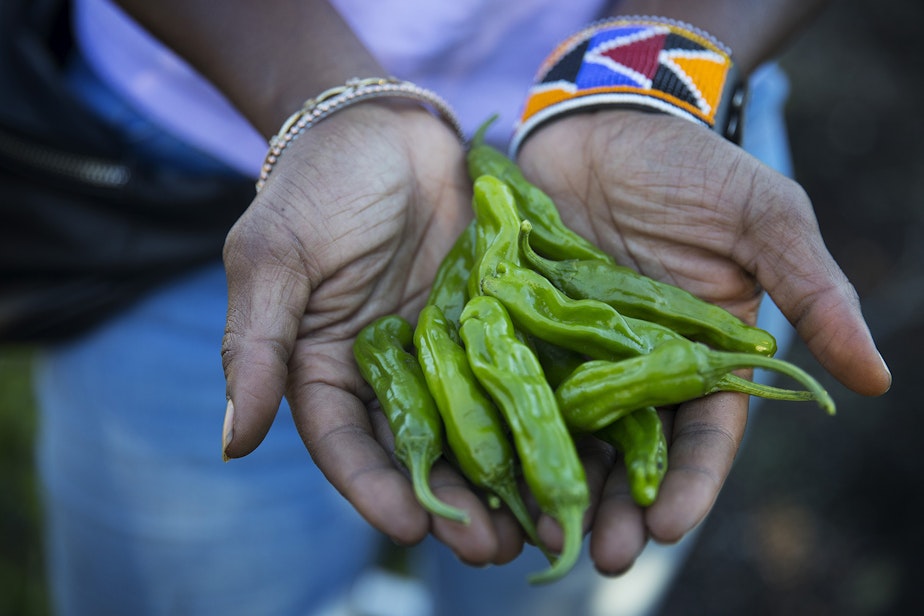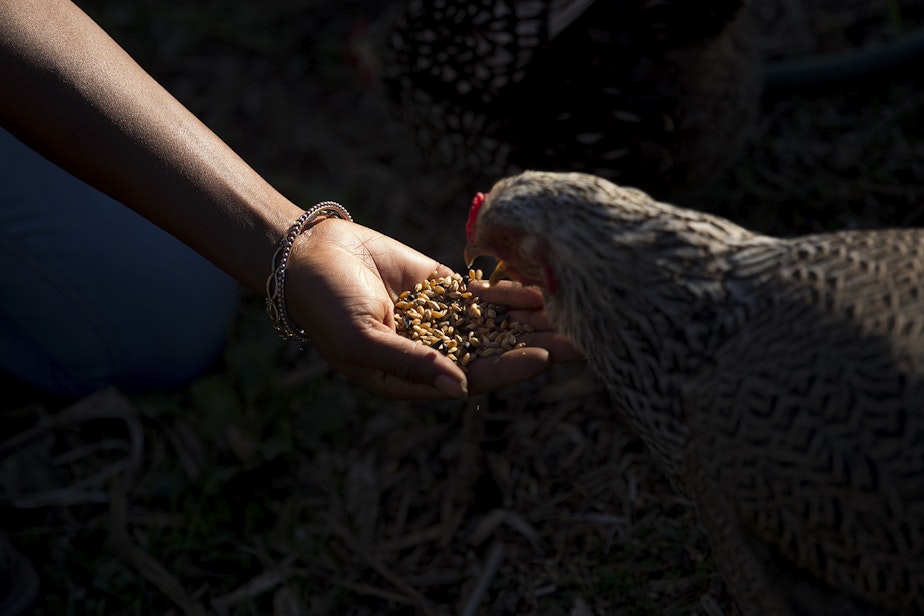What Black liberation looks like: 40 acres in Auburn, Washington
For Nyema Clark, Black liberation looks like 40 or so acres in Auburn, Washington.
It’s called Red Barn Ranch, and it belongs to Seattle Parks & Recreation.
It hasn’t been used in years, but soon Nyema Clark will enliven its soil, and invite people to heal and grow. To reap and sow. She will call this land the “Red, Black and Green Barn Ranch” – to honor the colors of Black liberation.
When she works the land, she feels whole. "I feel like my ancestors are talking to me,” she says.
Nyema is the founder of Nurturing Roots on Beacon Hill, but she wouldn’t dare call herself the executive director. She is the Farm Queen.
Sponsored
Nurturing Roots is a healing farm where the weeds of capitalism have been ripped out. You don’t pay for the fruits or vegetable, and there’s no supply and demand. It is land and food for the people.
And now, with the dream of healing Black and brown people on a farm, she is expanding to Auburn. It is an ideal that pushes white institutions to consider giving up their idea of ownership.
The Seattle Parks Department is working with Nyema Clark to figure out if a land transfer is possible.

I ask Rachel Shulkin, a spokesperson, “The phrase, 'Free the land.' How does that sit with you all?" and Shulkin sighs a little.
Sponsored
“On one hand, I think there's a great alignment in values there,” she says, “and on the other hand, we’re the government, and so we have a lot of requirements.”
Requirements that were devised to hold the city accountable, she says. “The same requirements that do not allow us to do things like free the land.”
But they’re working on it. It’s the first time this department within the city has considered how to give power to Black people through land ownership specifically.
For years, Africatown Community Land Trust has pushed the city of Seattle and predatory developers to put land and property back into the hands of Black people in the Central District. The unrest following the murder of Ahmaud Arbery, Breonna Taylor, and George Floyd opened the doors to push that longstanding conversation with white run governments and institutions about land ownership.
More recently, King County Equity Now has made a list of demands asking the city to transfer underutilize property into the hands of Black led organizations. Nurturing Roots is on that list.
Sponsored
Nyema draws connection with the plants she nurtures. “It’s hard for women of color, it’s hard for people of color in general, but Black folks have to develop a special skin,” she says.
“I see it in the plants that you have develop a special skin in order to survive, and it’s sad to see my cherries get ripened and then fall in a week.”
When I visit her at Nurturing Roots on Beacon Hill, she offers me a Dragon Tongue Bean, which tastes like a sweeter green bean with purple and yellow streaks.
“The stock is a little bit tough,” she says.
“Mmm it’s good,” I say.
Sponsored
“Right?” she says, delighted.
“A lot of what we learn about agriculture as Black folks is slave stuff,” she says. “It’s like, Are you kidding me? It’s healing, its love, it’s education.”
What Nyema has here — in part – is an answer to food access in a historically Black and brown neighborhood. A place where everyone can come sow, and everyone can come to reap.
She has families come to volunteer, food education, and access to other community resources such as doulas, yoga and art.
In harmony. And healing. This is what she hopes to expand to those 40 acres in Auburn.
This is the first story from Jenna Hanchard's series, "Rooted in Liberation." Watch this space for more stories forthcoming.


